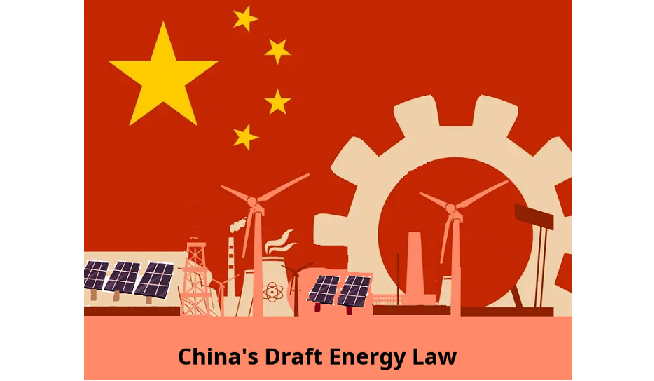
The latest draft of China’s long-awaited Energy Law has been issued for public comment following approval by China’s top legislative body, the National People’s Congress Standing Committee (NPCSC). This was stated in an analysis of the text by economic newswire Jiemian. The law, which was initially drafted in 2005, will be “considered at three [NPCSC] meetings before being put to a vote”, the outlet said. This means it could be formally enacted within the year.
PRIORITISING RENEWABLES
Jiemian added that the law “clearly supports prioritising the development of renewable energy; rational development of clean and efficient use of fossil energy; and orderly promotion of non-fossil fuel energy instead of fossil fuel energy and low-carbon energy instead of high-carbon energy”. Chinese energy news site International Energy Net noted that the draft law calls on the state to “establish a mechanism to promote green energy consumption and encourage energy users to prioritise using renewable energy and other clean and low-carbon energy sources”. Elsewhere, Chen Xinghua, associate professor at North China University of Technology and deputy secretary-general of the China Law Society’s energy law research group, told China Environment News that, until now, the “development of the energy industry…has relied more on dividends from reform of the energy system”. He added that a unified Energy Law is “urgently needed” to resolve the “intricate and complex” interests of various stakeholders, as well as the challenges of a modern energy system and meeting China’s carbon neutrality goals.
2024 CARBON INTENSITY TARGET
China’s Ministry of Environment and Ecology (MEE) has indicated that the country is aiming for carbon emissions per unit of GDP – also known as carbon emissions intensity – to fall by 3.9% in 2024, according to CCTV. Some analysts (see Carbon Brief ) have argued that carbon intensity would need to fall by 7% per year to meet China’s 2025 climate commitments.
‘BE REALISTIC’
Meanwhile, Chinese president Xi Jinping has called on policymakers to “be realistic, by not slowing the pace of green and low-carbon development, [but] not be too idealistic, above all guaranteeing energy supply”, the Chinese publication International Energy Net reported. At a technology-focused forum in Beijing, China’s National Energy Administration director Zhang Jianhua said China would “lead the innovation of the clean energy industry…further strengthen the foundation of energy security [and] continue to improve the scale and quality of non-fossil energy supply”, according to Xinhua news agency.
COAL CAPACITY
A statement jointly released by the National Development and Reform Commission and the National Energy Administration in April announced that China will establish a coal production capacity reserve system by 2027. China Daily reports that the purpose of the reserve system is to maintain China’s energy security, and it is not intended “to significantly increase coal production capacity”. According to the National Energy Administration the coal capacity reserve will be kept for extreme situations only and will remain inactive under normal conditions. “Extreme situations” include such events as adverse weather conditions, severe fluctuations in the international energy market, and dramatic changes in supply and demand.

Source: Edited extract from China Briefing newsletter, May 3, 2024.